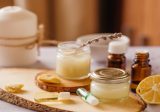Our great ancestors spent all day in the sun, gathering food with little to nothing covering their skin. According to science, they were really onto something – even though they were just “doing life.” Soaking up a little sun each day – even in the buff – has several excellent payoffs. The best part of all is that it is 100% natural and free medicine.
Humans are the only species that live indoors, yet we have built-in solar receptors. Keep this in mind as we uncover some great benefits of sunshine!
Sunshine improves your sleep
We create something called melatonin, which is critical to a good night’s sleep. This hormone is produced when it is dark, meaning you will start to feel a little sleepy a couple of hours after the sun sets. This is one reason why we naturally stay up later in the summer. Research shows that an hour of natural light in the morning can help us sleep better. Sun rays help regulate your circadian rhythm by telling your body when to increase and decrease melatonin levels. The more daylight exposure you get, the better you produce melatonin at bedtime.
Sunshine reduces stress
Melatonin plays a big role in stress reduction – the more time you spend outdoors, the less stressed your body will be. This is especially true if you are active outdoors because exercise also helps reduce stress levels.
Sunshine strengthens your immune system
Flu cases spike high during the weeks of the year when vitamin D levels are the lowest and sunshine exposure levels are lower. During the winter months, the immune system takes a beating because of a lack of sunshine. Vitamin D is essential for a strong immune system. A robust immune system can help reduce your risk of illness, infections, cancer, and even mortality after surgery. During the Spanish flu, patients were exposed to sunshine (even though it was cold) to help boost their immune system. Research has even found that low vitamin D was linked to an increased risk of hospitalization from COVID- 19 and a greater disease severity. Furthermore, research shows that sunshine positively impacts the immune system independent of vitamin D.
Sunshine is good for your heart
Cardiovascular diseases are the number one cause of death globally, taking an estimated 17.9 million lives annually. Studies show that exposing the skin to sunlight may help reduce blood pressure, cut the risk of heart attack and stroke and even add years to your life. The more sunshine you have in your life, the less chance you have of dying of a cardiovascular event. A study published in JAMA found that on days when there is less sunshine there are more heart attacks. Along with vitamin D, the sun also helps the body create nitric oxide, which is beneficial because it relaxes the inner muscles of blood vessels, causing them to widen and increase circulation.
Sunshine makes you happy and fights depression
Most people just feel better when there is more sunshine in their life. Science proves it; sunshine boosts our stores of serotonin, the chemical that helps us stay calm and focused. Increased sun exposure is linked to a reduction in symptoms of seasonal affective disorder – a condition that occurs during the winter months when there is less sunshine, and people spend more time indoors.
Sunshine builds strong bones
Vitamin D plays a major role in bone health. A lack of vitamin D has been attributed to bone-wasting conditions like osteoporosis and osteomalacia.
Sunshine is good for your mind
Research has found that low levels of vitamin D are linked to a twofold increased risk of dementia. If you want to keep dementia and Alzheimer’s disease at bay, get more sun. Daylight exposure primes the body to release melatonin from deep inside the brain and this lowers oxidative stress, inflammation along with many other positive side-effects.
Sunshine helps heal the skin
According to the World Health Organization ( WHO), sun exposure helps many skin conditions, including acne, jaundice, eczema, and psoriasis. When you get morning sunshine, the body produces more melatonin, which is necessary for the nightly repair cycle – including healing skin conditions.
Sunshine lowers inflammation
Chronic inflammation is associated with diabetes, heart disease, arthritis, bowel disease, and ulcerative colitis. Spending time in the sun lowers inflammation markers and reduces your risk of these serious conditions.
Other benefits of sunshine documented in research
Here some additional ways that sunshine can benefit your health.
- Sunshine exposure lowers stroke risk
- Sunshine exposure lowers the risk of venous thrombotic events
- Sunshine exposure can help you live longer
Smart sunshine
Smart exposure to sunshine is not sitting in the sun for unlimited periods. If you have not been in the sun, it is important to build up your exposure gradually. Start with a few minutes in the morning, noon, and evening and slowly increase your time. The more skin you can expose, the better! If you can’t take it all off, make sure that you are getting some sun directly on your chest each day. Use organic sunscreen that contains zinc oxide if you are going to be out in the sun for an extended period of time.
Eating an organic diet loaded with plenty of bright-colored fruits and veggies will help to protect your body while in the sun. Studies show that omega 3-fatty acids help to protect your skin as well. Seafood, liver, dairy, and eggs contain vitamin A, which is beneficial for the skin. Vitamin C and selenium (found in shellfish) are other skin-protecting elements. Research shows that people who eat eggs have a 43% lower risk of melanoma. The takeaway here is that the healthier your diet, the more natural protection you have from the sun’s rays, and the more you can enjoy its massive benefits.
Getting outside, no matter where you live or what the weather, is an excellent idea. If you live in the north, take as many vacations as you can to get your skin exposed to the sun. Bundle up in cooler months, but be sure to get outside and at least expose your eyes and your face to the sun.
Consider supplementation of vitamin D including K2 if you aren’t able to get out in the sun regularly in the winter months.
Bottom line: Enjoy the sun daily for better health and disease prevention. The sun is your friend, not your enemy!
-The WellDaily Team







